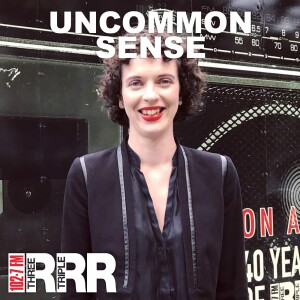
Federal Election Policy Series – Climate Change and Energy; The Case For A Genuine National Integrity Commission; Gabriel Shipton On The Fight To Free His Brother, Julian Assange
 2022-05-10
2022-05-10
Richie Merzian, Director of the Climate and Energy Program at The Australia Institute joins Amy for part 3 of the Uncommon Sense election policy series – climate change. Richie looks at Australia's current climate targets and tells us what targets and policies are needed to keep global temperature increases to 1.5 degrees celsius or at the very worst, 2 degrees celsius. He also examines and evaluates what Labor, the Coalition, the Greens, and the independents are proposing to do about climate change and energy policy at this federal election. Former judge Stephen Charles AO QC and Dr Catherine Williams discuss what a robust and effective federal integrity commission looks like, as well as other accountability bodies and measures needed to protect our democracy from corruption. These include reforms to our political donations system, among many others. Their new book is called, Keeping Them Honest: The Case for a Genuine National Integrity Commission and Other Vital Democratic Reforms. Stephen Charles QC is a former Judge of Appeal in the Supreme Court of Victoria and Dr Catherine Williams is research director of the Centre for Public Integrity. Gabriel Shipton, film producer and brother of WikiLeaks founder Julian Assange, speaks about his film ITHAKA, which follows Assange's father John Shipton in the fight to free Julian. Gabriel discusses the chilling effect America’s efforts to prosecute Julian are having on freedom of press and whistleblowers across the world, and the disturbing tactics deployed to silence him. Julian is currently being held in Belmarsh Prison, London. A court has formally approved the extradition of Julian Assange to the United States on espionage charges. His extradition will ultimately be a decision for UK home secretary, Priti Patel.
More Episodes
Create your
podcast in
minutes
- Full-featured podcast site
- Unlimited storage and bandwidth
- Comprehensive podcast stats
- Distribute to Apple Podcasts, Spotify, and more
- Make money with your podcast
It is Free
- Privacy Policy
- Cookie Policy
- Terms of Use
- Consent Preferences
- Copyright © 2015-2024 Podbean.com





